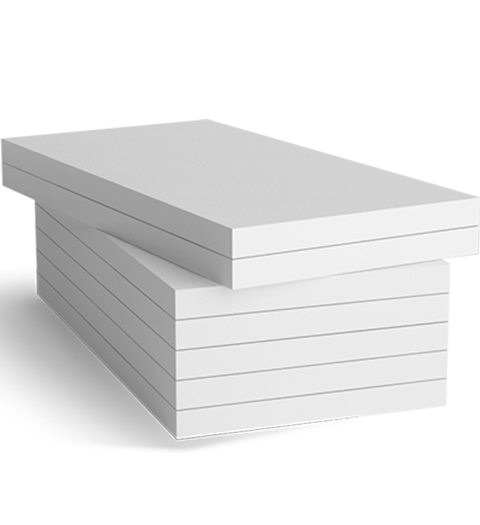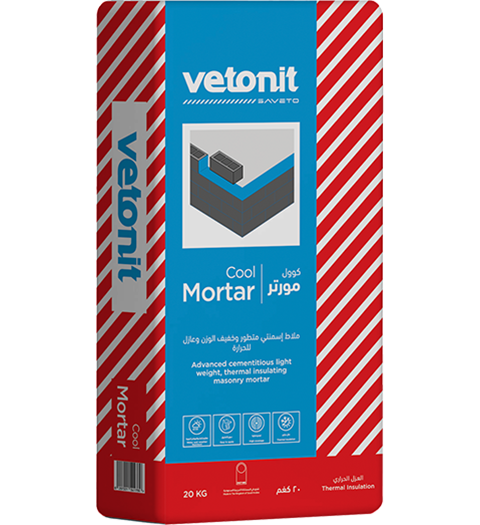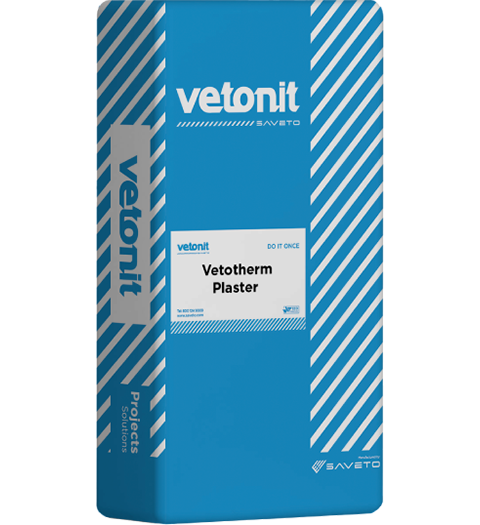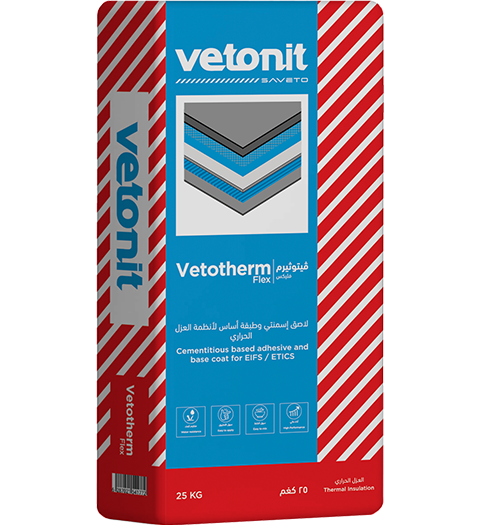Vetotherm EPS
Expanded polystyrene sheet.
Vetotherm EPS is an artificial polymer with an open structure of spherical particles filled with air. The properties of high vapor permeability, high mechanical resistance, high thermal insulation, and low price make Vetotherm EPS one of the most common thermal insulation materials in modern construction. Vetotherm EPS is supplied in white sheets with different sizes and thicknesses.

Uses
- Expanded polystyrene used as thermal insulation in EIFS / ETICS systems of residential and industrial concrete buildings.
- Save energy consumption related to heating and cooling.
- Internally or externally in wet & dry conditions, isolates the building from external weather.
- Work as a shock and sound absorber.
Advantages
- High vapor permeability.
- High mechanical strength.
- Effective thermal insulation, which saves electricity.
- Excellent workability.
- Ready to receive adhesives and a wide range of adhesives &decorative finishes.
- Suitable for internal & external applications.
- Low price
- Easy to transport.
Usage Instructions
The substrate should be sound, clean, free from loose material, grease, laitance, dirt, curing compound, etc. Remove Crumblled areas, and fill the holes until reaching a stable base. Uneven base - if deviations are greater than 1-2 cm, the facade should be evened.
The initial arrangement of the facade is made by applying a plinth profile with a drip-edge profile. Choose the profile according to the thickness of the thermal insulating material. The profile is leveled utilizing a level and is secured with screw anchors. The profile’s purpose is to give a correct horizontal level to the thermal insulation and fix and connect the plinth thermal insulation and the thermal insulation system.
Striking the Thermal Insulation Boards
Use Saveto Vetotherm Flex as an adhesive applied over the bottom sides of Vetotherm EPS boards. Apply the adhesive as a continuous framework along the edge of the insulation board and in the form of three or four balls in the middle of the board. Stick the boards to the wall while interchanging their adjacent vertical joints like brickwork. Do not leave joints between the boards, and if you get greater gaps, fill them with the insulation material or construction foam, but not with adhesive.
At external edges, interchange the boards. Around the corners of windows and doors, you must put whole thermal insulation boards, cut on-site along the contour of the hole, so-called “gun.” After the adhesive’s complete drying (min. 48 hours), start grinding rough places at the boards’ connections with a special tool.
Start anchoring Vetotherm EPS boards a minimum of 48 hours after sticking the boards to allow the adhesive to dry completely. The dowels should be mounted according to a diagram depending on the building’s height, the region, and the wind’s strength.
If Vetotherm EPS have a thickness exceeding 8cm, you need to make a hole of 2 m depth previously with a cutter, then in this hole, drill an opening for the screw anchor.
After the mounting of the dowels, fill the hole with a polystyrene cap. After completing the anchoring, cover the dowels’ heads with Saveto Vetotherm Flex to flush with the boards’ level.
Apply ready-to-use angle profiles Vetotherm ACP to reinforce external angles. Apply Saveto Vetothem Flex along the edge, place the profile and press it tightly. Strengthen the corners around doors and windows








